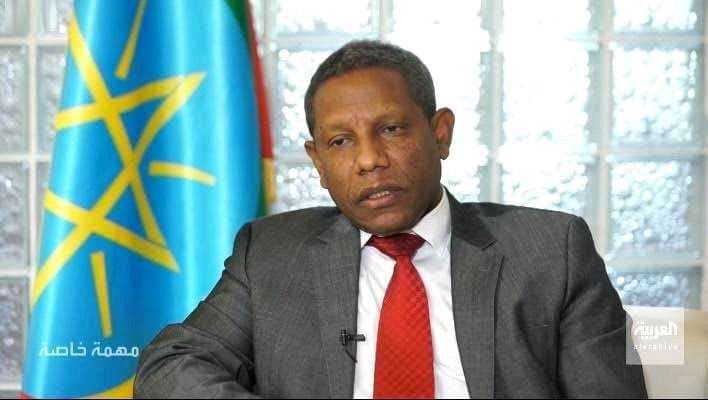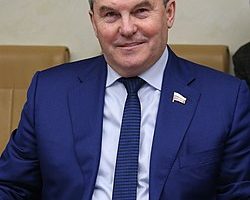
BY STAFF REPORTER
It is abundantly clear that Ethiopia has been living in peace and harmony with its neighboring countries. This is also supported by its foreign affairs policy. Promoting mutual development and cooperating on issues of common importance are at the heart of the policy.
In more precious terms, the country does not bat an eye in pursuance of standing by the side of neighboring countries for the most part when they get into hot water.
For instance, Ethiopia managed to play a significant role in getting to the bottom of Sudan’s crisis. The country exhaustively tried to ensure peace and stability in Sudan. Moreover, Ethiopia deployed peacekeeping missions in war-torn areas to safeguard the security of the country and protect civilians.
In practical terms, Ethiopian troops have sacrificed their lives for the Sudanese people to live. But in an expected turn of events, Sudan has occupied border areas of the two countries by force, killing Ethiopians, looting, and damaging farms and property.
Of late, The Ethiopian Herald had a short stay with Yibeltal Aemero, Ethiopian Ambassador Extraordinary and Plenipotentiary to Sudan, regarding the Sudanese military aggression, and Ethiopia’s responses to it.
Thanks, Ambassador, to begin with, has Sudan in any way shown interest to resolve the matter diplomatically
You’re welcome. We have been exerting efforts at different levels to convince the Sudanese authorities to withdraw their force from the recently occupied area and start the negotiation.
There is also an existing framework of the boundary committees to re-demarcate the boundary as per the existing agreements. Unfortunately, the effort to convince the Sudanese authorities at different levels has not yet brought a significant result.
Could you tell us the extent of the devastation of this military aggression?
Aside from farmers who are permanently owning farms and cultivating at the border areas, one will find thousands of daily laborers employed there. While on the subject, owing to the military incursion, hundreds are displaced from their area, properties are looted, camps of the farmers were burnt and they lost a big amount of crops as a result.
The regional administration [of the Amhara State] estimated the loss to be nearly one billion Birr, though I am not quite sure about the cost estimate of the property damaged. But the impact of this military incursion is huge and affected the livelihood of hundreds of thousands of Ethiopians.
Ethiopia is demanding the previous Status quo be restored. What are the demands?
You will find Ethiopian farms and farmers in the area. So when we are talking about the status quo to be respected, we want the Sudanese to withdraw their force from the Ethiopian farms. Now they have already occupied the Ethiopian farms.
Situations have been escalating since the occupation. But do you think there are any possible peaceful resolutions so far?
The position of our Government still is to resolve the situation peacefully through dialogue, negotiation bilaterally through the existing framework and agreements. And we do not want war with our friendly people of Sudan. War will not help bring a lasting solution.
We may fight the war but the boundary problems will continue. Boundary problems have to be resolved peacefully, we have to seat on round tables and negotiate, and decide or determine where to put the pillars. Otherwise, we may fight the war but the boundary problem will continue.
War has a devastating effect on both countries and it is not wise to fight a war between neighbors. Thus, our position remains on a peaceful resolution.
After all Ethiopia’s contribution and sacrifice for the Sudanese peace by deploying its peacekeeping force for many years, the current border situation has happened. What is your take on that?
Well, I say that it is very unfortunate that the Sudanese government invaded Ethiopia while our government is busy [with the law enforcement] in Tigray regional state. Ethiopia has played a very important role in bringing peace to Sudan.
We have a historical record that starts in 1972 when Emperor Hailesilassie sealed the Addis Ababa Agreement between the Southern opposition and the Sudanese government. Even after that, when the Sudanese government was negotiating with the southern Sudanese People’s Liberation Front (SPLF), Ethiopia played a very important role under the IGAD framework.
Moreover, when a peacekeeping mission was deployed in Darfur, Ethiopia has contributed troops for the peacekeeping in Darfur. We are also the only country that deployed a peacekeeping mission in Abyei. While our soldiers are in Sudan to protect the peace in the Country, the Sudanese army attacked us, which is very unfortunate.
Besides that, following the ouster of Al Bashir’s government, there were a series of negotiations going on and our Prime
Minister, Dr. Abiy Ahmed, has played a very crucial role to bring peace between the military and the civilians. Thus, the role of Ethiopia, especially our Prime Minister for the peace agreement that we now witness in Sudan, is very great. So, Ethiopia has been continuously playing a very constructive role in ensuring peace in Sudan as I said since 1972.
There is an existing joint Border Commission established between the two countries and there are also committees for the re-demarcation and delimitation of the border. Would you tell us the works that have been done so far in this regard?
As you said, there are three committees established with regard to the boundary matter. One is the Joint Boundary Commission, which is the higher body that is responsible for the re-demarcation of the joint border.
Under this, there is a technical arm, which is called the Joint Technical Boundary Committee that would be deployed in the field to put the actual pillars at the boundary areas.
Especially for the boundary portion of North of Mount Dagleish, we have a joint special committee entrusted in finding an amicable solution for the problem resulting from settlement and cultivation in the area. Hence, before the re-demarcation of the boundary north of Mount Dagleish, the special committee has to study the problems resulting from the stated matters.
Once that amicable solution is accepted by both governments, then the re-demarcation can proceed. So, the purpose of that special committee is to find amicable solutions for the problems of settlement and cultivation in the area north of Mount Dagleish.
Thus, we have three committees there, and when the special committee gets done with its task, the joint technical boundary committee can do the actual job of the re-demarcation or putting the real pillars on the ground.
But the Sudanese government stood against these mechanisms and took military action, which is against the 1972 Exchange of Note that states the respect for the status quo.
Some say, the issue needs mediation, what is your take on this?
Since all the mechanisms and the bilateral agreements are available and we have not yet finalized or exhausted these mechanisms, there is no need for a third party to mediate the matter. It is a matter that could amicably be resolved by the two countries.
The Ethiopian Herald February 6/2021





